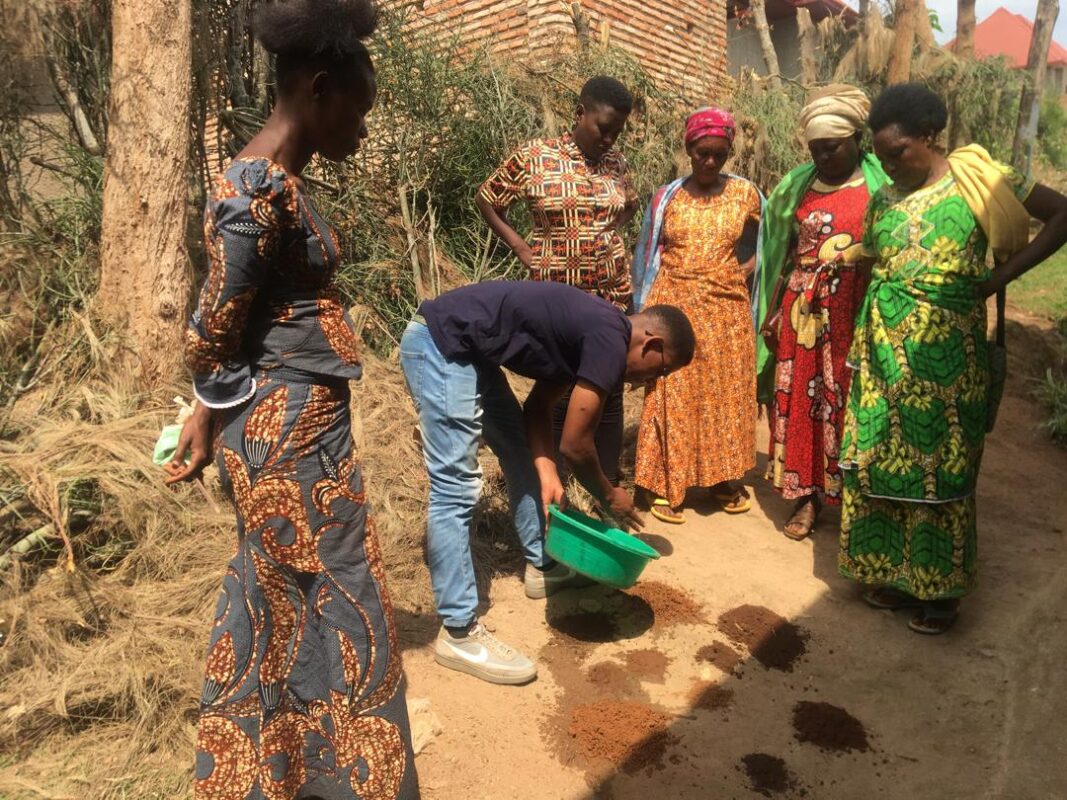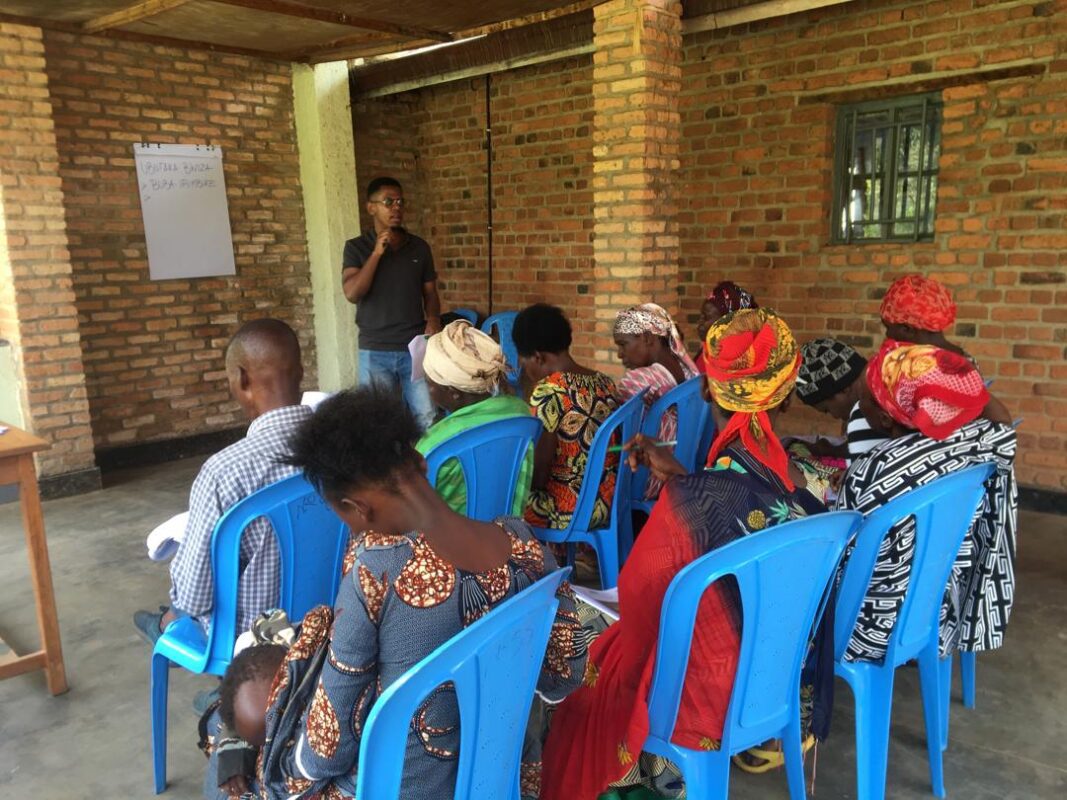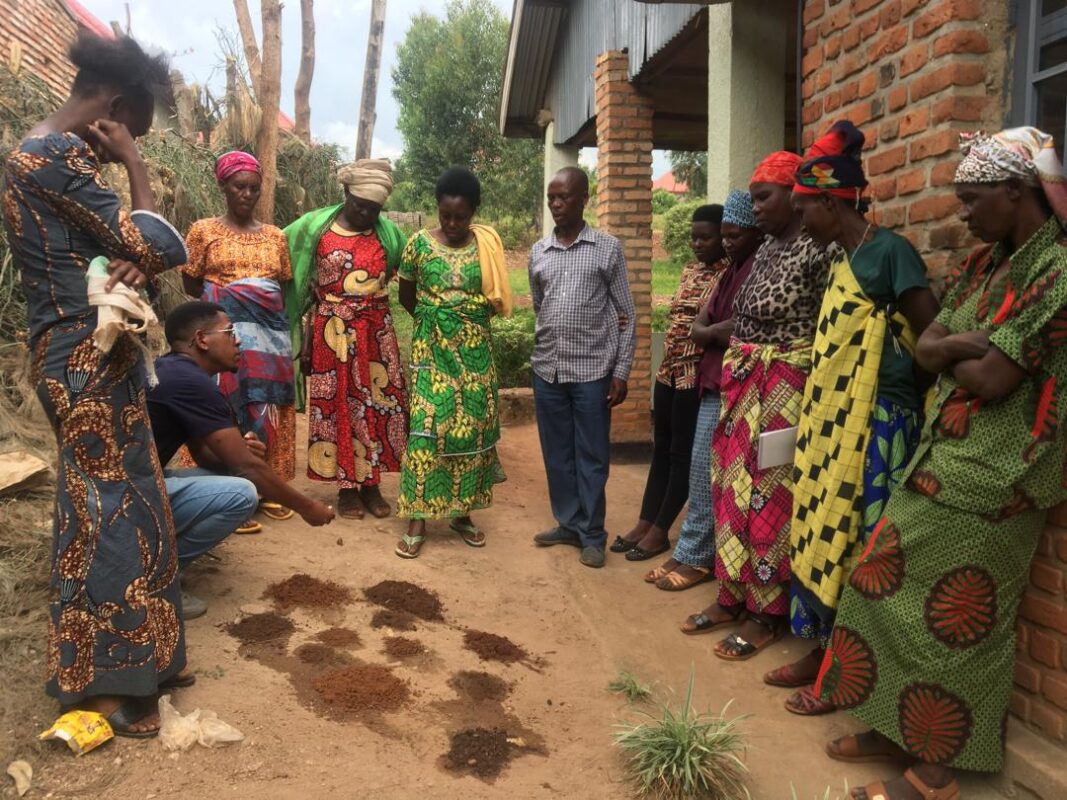Kamonyi, Rwanda — January 2025
In an effort to boost agricultural productivity and sustainability, a transformative training program is underway in four cooperatives in Kamonyi District: Tuzamurane-Gihara, Abibumbye-Kamonyi, KOABA-Karama, and Abaticumugambi-Kabuga. The activity, which began on January 13 and will conclude on January 24, 2025, is equipping farmers with vital knowledge and skills to better understand and manage their soil for improved yields and sustainable farming practices.
The training covers a range of critical topics, including understanding soil types, the intrinsic value of soil, and its role in crop development. Farmers are also being trained on effective soil management techniques, methods for improving soil fertility, and conducting soil assessments tailored to each cooperative.

Cooperative members learning various techniques to take care of the soil.
One of the key goals is to empower cooperative members with the ability to identify the unique characteristics of their soil, such as its water retention capacity. This knowledge will enable them to select crops that are best suited to their soil conditions and practice crop rotation effectively.
Additionally, the program emphasizes the importance of mulching, a technique that not only helps retain soil moisture but also enhances fertility, prevents soil erosion, and creates an environment conducive to soil biodiversity. By adopting these practices, farmers can expect increased productivity, reduced farming costs, and more efficient use of time.

Cooperative members following the theoretic session of the program
The program is poised to deliver significant benefits, including higher crop yields, improved soil health, and greater resilience to climate-related challenges. It represents a crucial step in the journey toward sustainable agricultural development in the region.
As the training continues, the participants are optimistic about the transformative impact these skills will have on their farming practices, their livelihoods, and their communities.


